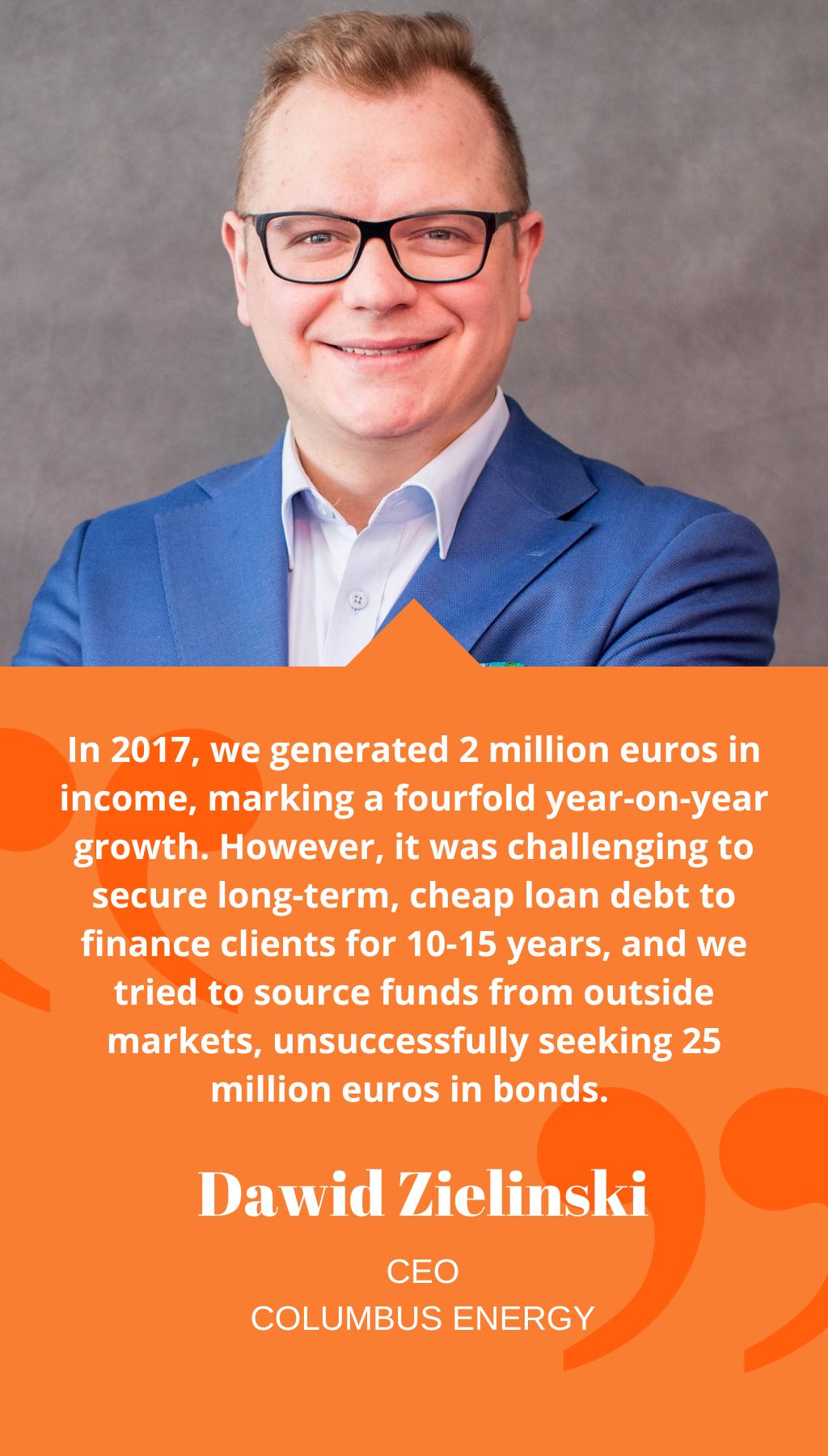
- Poland | 28 August 2019

Could you elaborate on the circumstances that led to the founding of Columbus Energy, considering the dominant role fossil fuels played in the energy market at the time and the challenges posed by the prosumer support programs?
We launched Columbus Energy during a time when solar energy was not yet as mainstream as it is today. Back then, fossil fuels such as coal, gas, and oil dominated the energy mix. Photovoltaic installations were expensive and had a long payback period, while the prosumer support programs were still in their early stages. Despite these challenges, we believed that photovoltaic energy was the future of modern energy, and so we started planning to enter NewConnect. With the support of Krakow investor January Ciszewski, we were able to get our business off the ground.
Your company has achieved remarkable growth and currently holds a 15% share of the market, despite growing competition. What factors have contributed to your success?
We attribute our success to our ability to adapt to the various challenges we’ve faced in the market. For example, when Poland’s conservative party won the elections in 2016 and crushed the renewable energy law, we didn’t let this stop us. Instead, we came up with the innovative idea of the “Sun Contract” program, where we offered loans to interested customers for a period of 15 years with low monthly costs. We took out bonds worth 2.5 million euros for a period of two years, which we used to fund the program. This allowed us to install roughly 1,000 photovoltaic installations during the first year of the bond issue, accounting for half of the number of households with installations at the time in Poland.
While the strategy was unconventional, it proved to be a success. In 2017, we generated 2 million euros in income, marking a fourfold year-on-year growth. However, it was challenging to secure long-term, cheap loan debt to finance clients for 10-15 years, and we tried to source funds from outside markets, unsuccessfully seeking 25 million euros in bonds. Eventually, we turned to banks and convinced them of the opportunity in this sector, leading to a very successful 2018 where we doubled our revenue to 7 million euros.
In 2019, we recorded unit income of over 50 million euros, more than tripling our revenues compared to 2018, with EBITDA profit increasing fivefold. In 2020, we are poised to triple these results with the construction of photovoltaic farms with a total capacity of over 100 MW with a sales value of over EUR 100 million, which will supply our assets.
As a publicly listed company, you recently brought on a new partner and hold a cautious approach towards partnerships. Are you still seeking investors to fund your expansion plans?
You mentioned expanding into the e-mobility sector. Can you share more details about your plans?
With expectations of generating significant cash in the next five to seven years, we plan to build our network of EV charging stations. We see an opportunity here because the infrastructure is underdeveloped, with the largest player in the market only having 500 stations installed.














